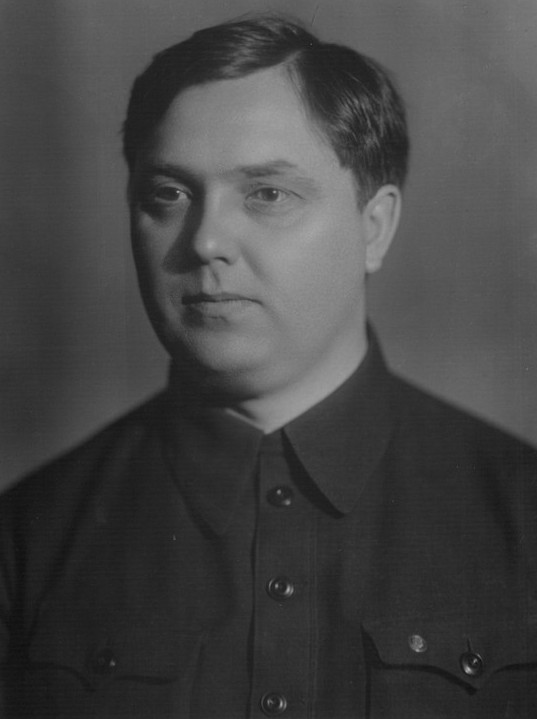


The Anti-Party Group (Russian: Антипартийная группа, tr. Antipartiynaya gruppa) was a Stalinist group within the leadership of the Communist Party of the Soviet Union that unsuccessfully attempted to depose Nikita Khrushchev as First Secretary of the Party in June 1957. The group, given that epithet by Khrushchev, was led by former Premiers Georgy Malenkov and Vyacheslav Molotov and former First Deputy Chairman Lazar Kaganovich. The group rejected both Khrushchev's liberalization of Soviet society and his denunciation of Joseph Stalin, and promoted the full restoration and preservation of Stalinism.
The members of the group regarded Khrushchev's attacks on Stalin, most famously in the Secret Speech delivered at the 20th Congress of the CPSU in 1956 as wrong and hypocritical, given Khrushchev's complicity in the Great Purge and similar events as one of Stalin's favorites. They believed that Khrushchev's policy of peaceful coexistence would jeopardize struggle against capitalist powers internationally.
By 1957 Nikita Khrushchev was in a relatively secure position as first secretary of the Communist Party. Several years earlier he had outmaneuvered Georgii Malenkov for party leadership by stressing the need to continue developing heavy industry and increasing military expenditures, policies that appealed to core constituencies of the party. He also built via the power of appointment an extensive network of loyal clients in the central apparatus and regional party organizations. He had weathered the storms of the previous year in eastern Europe occasioned by destalinization, and could point to the success of his Virgin Lands scheme that had brought millions of new acres under cultivation.
Now determined to liberalise the economy, decentralise economic planning, Khrushchev embarked on a radical restructuring of economic administration. In February he announced the abolition of most central industrial ministries and the creation of 107 regional economic councils (sovnarkhozy) corresponding to the territorial divisions of oblasts and autonomous republics. Intended to bolster regional party leaders’ participation in and supervision over economic decision-making, the “Law on Further Improving the Organization of Management of Industry and Construction” was passed by the Presidium of the Supreme Soviet on May 10, 1957.
Stung by the implications of this decentralization program, Viacheslav Molotov, Lazar Kaganovich and several other Stalinist stalwarts confronted Khrushchev at a meeting of the party’s Presidium in late June. They accused him of sowing disunity in the party, promoting his “cult of personality,” and otherwise acting irresponsibly. However, Khrushchev parried this attempt to oust him as first secretary in favor of Nikolai Bulganin by calling an extraordinary session of the Central Committee. Thanks to Georgii Zhukov, the Minister of Defense who arranged military transport to bring Khrushchev’s supporters to the capital, the majority in the Central Committee turned the tables on Khrushchev’s critics by denouncing them as an “anti-Party group” and confirming him in office. The conspirators were forced to resign from the Presidium and assume minor posts in the state bureaucracy. Zhukov was rewarded for his support by being upgraded from a candidate to full member of the Presidium, but in October 1957 he was removed from office and sent into retirement, undoubtedly because he had come to represent a threat to party oversight of the military.